Benefits of Email Marketing You Need to Know in 2026
Everyone knows that email marketing is a must, but few know just how many benefits of email marketing there are. Read on to find out. You'll be amazed!
Updated November 5, 2024
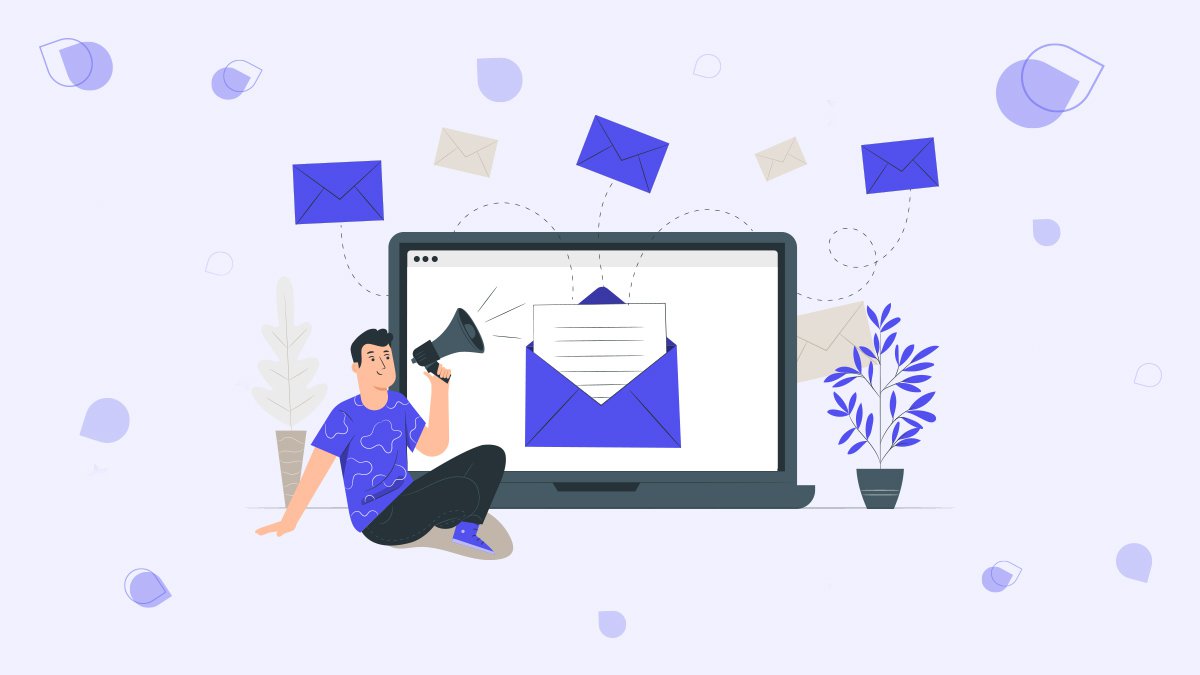
Everyone knows that email marketing is an effective marketing channel with the highest revenue.
Why's that? Because it lets you own your list, get crucial data from your current customers, send personalized messages, and segment your audience according to your marketing and business goals.
Email marketing is a powerful tool for business owners and marketers. In this post, we explore all the different ways you can build effective email marketing campaigns to smash your business goals.
What is email marketing?
Email marketing is a digital strategy for reaching customers via their inboxes. It involves gathering email addresses of your current customer base, website visitors, or social media followers who may be potential customers to send them different types of emails to remind them about your brand and drive sales.
The key is to send relevant content consistently, like promotional emails that showcase products and services, or convey information about a company to a specific group of recipients. Many email marketing services help to do this in a way that's easy and cost-effective.
With that said, incorporating email marketing into your marketing strategy is kind of a no-brainer.
Why email marketing still matters
We're all trying to keep up with where our audiences hang out on social media, but the data shows that many business opportunities are still to be found in the email inbox.
A recent survey found that 99% of people check their email every day, and that 73% of millennials prefer to read emails from companies over other communication channels.
With these stats, you can't deny the advantages of email marketing. It's a highly effective tool that lets you engage with your wider audience, build stronger relationships with them, and drive sales.
Benefits of email marketing
Now, let's dive into the biggest benefits of email marketing:
1. Share personalized content.
Personalization is a keyword in marketing today. A solid email marketing strategy involves tailoring the content of your emails to subscribers to boost engagement and build strong customer relationships.
With a little bit of research into what people want to hear from you, you'll get insights into how to customize even regular emails to create content that resonates with email subscribers.
Personalization can include anything from including a recipient's name in the subject line or using more accessible email templates, to crafting dynamic content based on audience segments.
The benefits of personalization are clear: higher email engagement, increased click-through rates, and improved customer relationships. With tools like Mailchimp or Klaviyo, you can automate the creation of highly personalized emails, ensuring that each recipient feels valued and understood.
Here are some ways you can add that personal touch to your email marketing campaigns:
- Personalized greetings: Start your email with a recipient's first name. For example: “Hi [First Name], Check Out Your Exclusive Offer!”
- Welcome email for new customers: is how you welcome your new subscribers, offering them a VIP experience. Introduce your brand, add a survey, an interactive product quiz, or a referral program.
- Product Recommendations: If a customer has previously browsed or purchased certain products, you can send them emails featuring similar or complementary items. For example, “Based on Your Recent Purchase, Here Are Some More Styles You Might Love.”
- Location-Based Offers: Inform your audience about in-person events, or tailor promotions based on a subscriber's location, such as “Visit Our [City Name] Store for Exclusive In-Store Discounts.”
- Abandoned Cart Recovery If a customer leaves items in their online shopping cart without completing the purchase, send a reminder email. Include images of the abandoned items and a message like, “Did You Forget Something, [First Name]?”
- Special Occasion Emails: Send personalized birthday or anniversary emails with exclusive discounts or gifts. “Happy Birthday, [First Name]! Here's a Special Gift Just for You.” Important industry news can work here, as well.
- Content Preferences: Based on a subscriber's past interactions, segment your emails to cater to their interests in future campaigns. For example, if someone often clicks on technology-related articles in your newsletters, send them more tech-focused pieces of content.
- Re-engagement Emails: For subscribers who haven't engaged with your emails in a while, try looping them back in with personalized messages like, “We Miss You, [First Name]! Here's What You've Missed.”
- Purchase History: Acknowledge and thank customers for their previous purchases. “Thank You for Being a Loyal Customer, [First Name]. Enjoy 10% Off Your Next Purchase.”
- Anniversary of Joining: Recognize and celebrate the subscriber's anniversary of joining your email list. “It's Been a Year Since You Joined Us, [First Name]! Here's a Special Thank You.”
- Preference Center: Allow subscribers to customize their email preferences. Based on their selections, send them content and offers tailored to their interests.
Remember, the more personalized and relevant your email outreach is, the more likely recipients are to engage with them and take the desired action, whether it's making a purchase, clicking a link, or simply staying subscribed to your list.
2. Collect feedback and conduct surveys.
Understanding your audience is essential. Email marketing can be used to send surveys and get customer feedback. You can gain insights into customer satisfaction, measure your Net Promoter Score (NPS), and even identify brand ambassadors.
This data can help you make more informed business decisions, improve customer experience, and tailor your offerings to meet your audience's needs effectively.
3. Boost company sales.
Email marketing is a sales powerhouse.
With email, you can send product recommendations, exclusive deals, and cart abandonment emails. gentle reminders to complete those abandoned purchases. It's a friendly tap on the shoulder, and more often than not, it results in those satisfying “cha-ching!” moments.
If you run an online fashion store, for example, you'll want to keep your audience informed on special offers for the upcoming season. Email marketing can help you
- Segment your audience: Divide your email list into categories like “Frequent Shoppers,” “Recent Buyers,” and “New Subscribers.” Each group may respond differently to your email campaigns.
- Create compelling product emails: Craft visually appealing emails showcasing your summer collection. Include high-quality images, product descriptions, and clear CTAs (Call to Action) like “Shop Now” buttons.
- Personalization: Use data from previous purchases to suggest items similar to what each customer has bought before. For instance, if a customer purchased a sundress last year, recommend this year's popular sundress styles.
- Limited-Time Offers: Create a sense of urgency with limited-time promotions. For example, “Summer Flash Sale: 24 Hours Only!” encourages recipients to make a purchase sooner rather than later.
- Abandoned Cart Emails: Implement an automated abandoned cart email series. If a customer adds items to their cart but doesn't check out, send a reminder email with a picture of the items and a direct link to complete the purchase.
- Test Email Subject Lines and Content: A/B test different subject lines and email content to see what resonates best with your audience. This can significantly improve open rates and conversions.
- Provide Exclusive Discounts: Reward loyal customers with exclusive discounts or early access to sales. This can incentivize repeat purchases.
Want more inspo? Check out our guide to the top email marketing examples.
4. Have conversations with your audience.
Building strong, ongoing relationships with your audience is a hallmark of a successful digital marketing strategy. Consistent email marketing offers a direct line of communication with your audience. Whether it's a slow or busy season, you can send marketing emails that keep your brand on your audience's radar, nurturing brand loyalty and increasing customer retention.
5. Increase site traffic.
Engaging email campaigns can help bring traffic to your site. While there are so many types of content you can create for your website, your efforts will have a larger ROI if people actually know about your new content. That's where email marketing benefits really play in. You can announce a product launch, launch an email newsletter to promote blog posts and PR pieces, and even create a line of exclusive content.
Email marketing serves as a conduit, directing traffic to your website while improving your search engine optimization (SEO). By providing valuable content through email, you can keep your audience as engaged with your brand and your site as the day they gave you their email address.
Remember to include clear calls to action (CTAs) in your emails to encourage readers to explore your site further.
6. Launch email campaigns quickly.
Traditional marketing campaigns can be time-consuming to plan and execute. Email marketing, on the other hand, lets you adjust your content and timing as you go. You can create and launch campaigns quickly, ensuring that your audience receives timely and relevant messages.
In fact, many email marketing platforms allow you to schedule email blasts ahead of time so that you can avoid the pre-deadline rush. Whether it's annual campaigns like Labor Day or Mother's Day or Father's Day to individual customers, or the big quarterly newsletter emails to your company's stakeholders, you can run successful email campaigns that are most relevant right now.
7. Generate leads, and reach thousands of people, in a few clicks.
Just as email marketing can lead to improved sales, it's also a potent tool for increasing leads. In an inbound marketing approach, email marketing nurtures leads, guiding them through the conversion funnel.
For instance, a visitor who downloads a lead magnet can receive drip emails that gradually move them from a marketing-qualified lead (MQL) to a sales-qualified lead (SQL).
Email marketing also helps email marketers qualify leads so that your sales teams can focus on prospects with genuine interest. If your company uses lead scoring, you can track how leads engage with your emails, providing valuable data for refining your approach.
8. Be in the right place at the right time for your audience.
Effective marketing hinges on reaching the right audience at any given moment. With the handy segmentation email tools available on most email marketing software, email marketing is definitely a great way to do just that.
Segmentation allows you to target different email users within your audience with precision, maximizing the ROI of your email marketing efforts. Not only that, recipients check their email consistently, almost as much as their favorite social media channels. That means people are highly likely to actually see your messages.
So whether you're sending daily emails to welcome newcomers, or launching a seasonal promotion or addressing specific customer needs, consistent email communication cultivates brand awareness and keeps your audience engaged.
9. Run cost-effective campaigns even on a tight budget.
Compared to traditional marketing channels, email marketing is remarkably cost-effective with a great average return on investment. Without having to cover additional costs of photoshoots, location fees, printing, mailing, and placement, all you need is a copywriter and maybe a graphic artist. This lean approach can definitely lighten the load on your marketing budget!
Email campaigns also have a much faster turnaround – you can create and send an email within a day. This is obviously way faster than traditional print campaigns. Given that time and money are resources that there never seems to be enough of, the low email marketing costs make it a great option for driving your business goals.
Pro tip: Want to increase your conversions? Combine your email marketing with SMS.
10. Foster connections with valuable content.
Delivering value should be a central goal for any business. Successful email marketing campaigns cultivate customer loyalty by giving them ongoing value, even when they aren't making immediate purchases. Think about it: subscribers have opted in to receive your messages. They actually want to hear what you have to say!
And the more value you give, the more your audience will engage with you, giving you an even greater return on investment (ROI).
11. Promote what sets your brand apart from the rest.
Self-promotion is a crucial marketing goal. But it can be challenging to cut through the noise. With social media marketing, for example, there's a lot more information overload that folks wade through as they scroll past your content. So you won't get as good results with self-promoting content.
Your subscribers, on the other hand, have opted into your direct marketing material. You can send emails showcasing new products, features, or exclusive offers. They actually want to hear what you have to say.
12. Own your email marketing list.
Maintaining a social media presence is an absolute must, but it's also an incredibly fickle form of marketing! You don't own your audience or your content; all you can do is show up and post, and pray you won't get walloped by the latest changes in algorithms. Also, you never quite know when your audience might dump one social media platform for another.
On the other hand, you get to build and keep your email list no matter what email provider you use. You have full visibility and control over your list, whether it's monitoring bounce rates to keep your list clean, or changing email service providers as your business needs evolve. Not only that, but people usually hold on to the same email accounts for years.
13. Increase brand awareness.
Email marketing tools are incredibly effective for increasing brand awareness. From allowing you to consistently communicate with your target audience directly in their inbox, to the many design tools and templates to choose from, you can show off your brand's unique voice consistently in every single message.
Not only that, but you can link to relevant social media platforms in your emails to give your audience more touchpoints with your brand.
14. Automate campaigns: just set it, and forget it!
Email automation is a complete game-changer. You can create personalized, automated campaigns that are scheduled in advance, and even set up workflows triggered by subscriber behavior or segmented lists.
You don't need to be a seasoned digital marketer to craft strategic message sequences that improve customer experience with your brand. You just have to know your customers and imagine what information they'd find valuable and helpful, and when. You can also automate when your audience moves from one segment to another, instead of filtering out your contacts before each and every campaign.
Spend less time on busy work, and more time on reaching bigger business goals.
15. Get full visibility on campaign performance.
Like they say: you can only improve what you measure. Email marketing tools give you clear campaign reports that show you everything you need to know about your campaign's performance. You can see the results in real-time, and A/B test your email elements, like subject lines, images, and calls to action (CTAs).
You can also track key metrics like email open rates, click-through rates, and conversion rates. Additionally, sign-up forms and social media links in your emails provide valuable demographic, preference, and behavioral data about your subscribers.
Seems like a lot? Maybe bring an email marketing pro on board.
Many brands underestimate the full potential of email marketing or don't have the initial time it takes to create content and set up email marketing flows.
If that's the case for your company, you might want to consider hiring a freelance email marketing specialist or consultant or an email agency with a track record in your specific industry. Even if you already have a marketing team steering your email campaigns, an expert can take a quick peek to identify any speedy fixes that could enhance your strategies.
The benefits of email marketing are there for those who seek it
Marketing trends come and go, but one strategy is here to stay: email marketing. It's not just about sending emails; it's about building connections, fostering loyalty, and driving real results.
The benefits of email marketing in 2023 are undeniable. It's your secret weapon for personalized content, boosting sales, and communicating with your audience effectively. It's the engine behind increased website traffic, timely campaigns, and lead generation.
And it does all this while being cost-effective and providing unparalleled value to your audience.
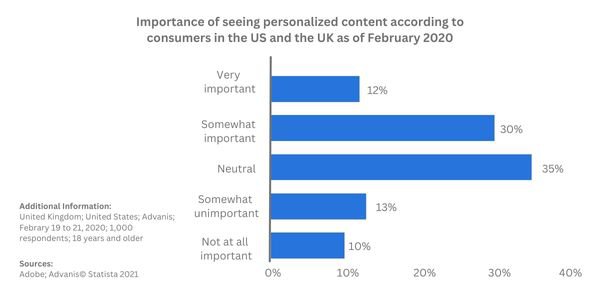
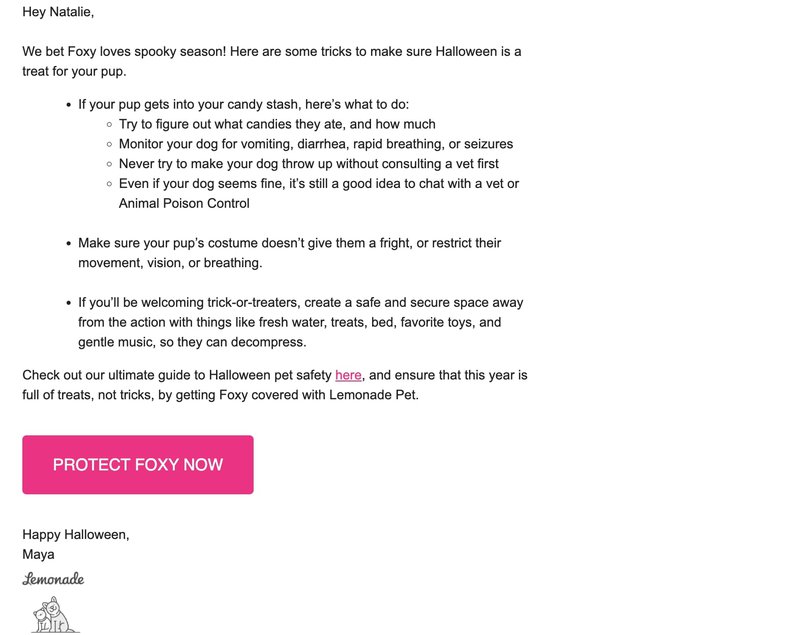
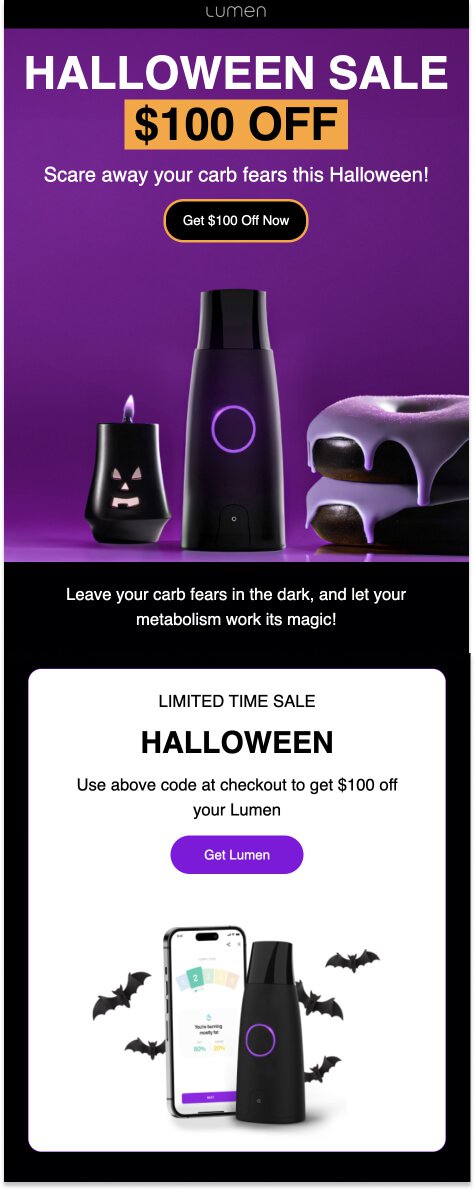
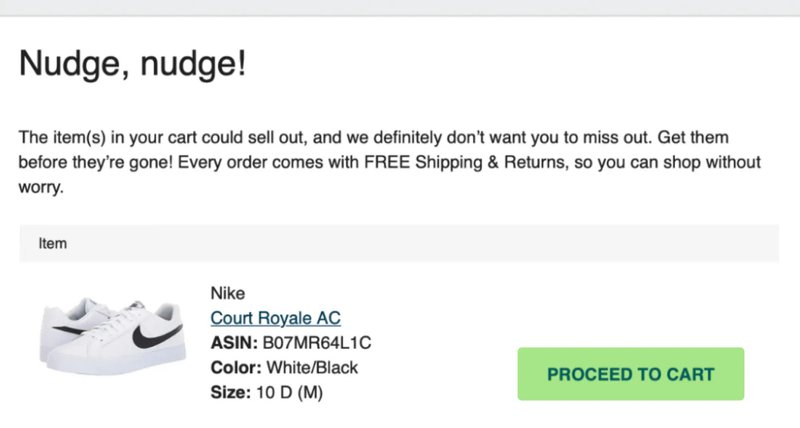

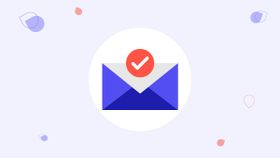

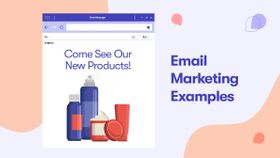
![16 Top eCommerce Trends to Watch in {year} [VR + AI + Omnichannel Marketplaces]](https://entail.mayple.com/en-assets/mayple/fit-in/280x280/60ddc2f932445eac2fb4c0b8_jezaelmelgozalayMbSJ3YOEunsplash3925x2208_90fe4a0a6204b996bc04c8f364d41fa5_2000-1699777198386.jpg)